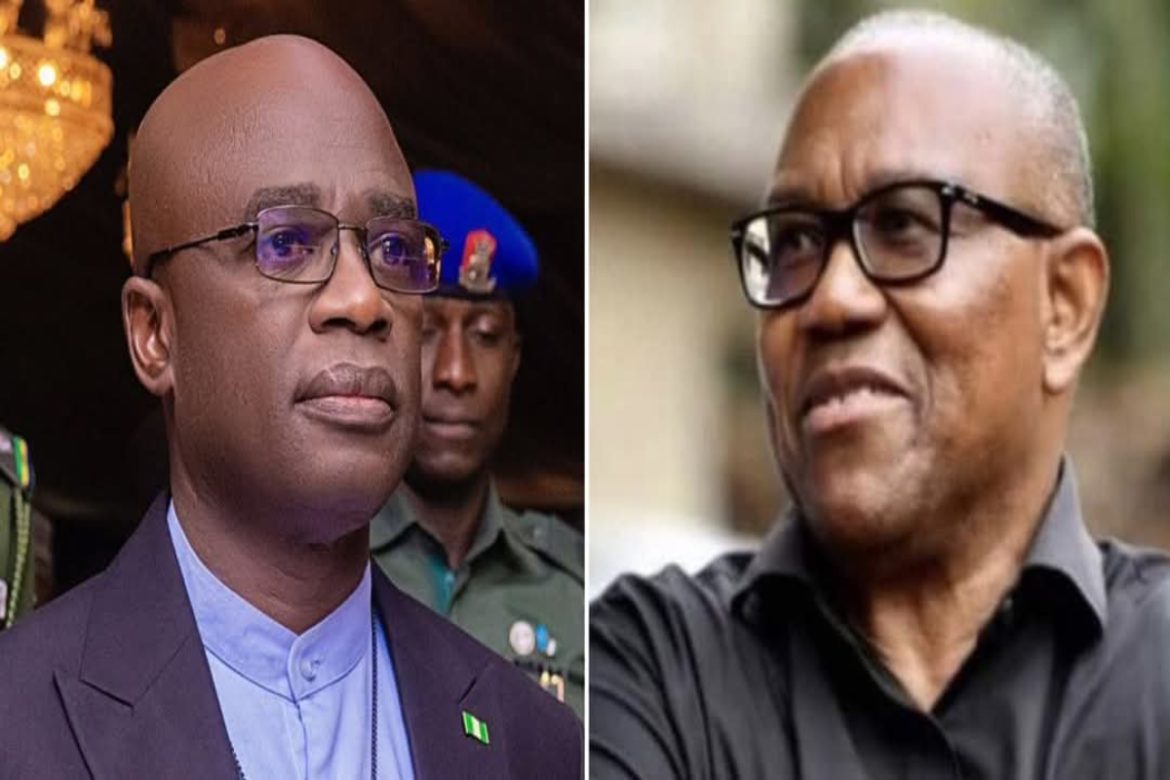Controversy is brewing across Nigeria following claims that Benue State Governor, Rev. Fr. Hyacinth Alia, barred former presidential candidate Peter Obi from visiting the state on a condolence mission, even as armed bandits slaughtered over 200 residents in recent attacks.
Critics are now questioning the Governor’s priorities and crisis management, accusing him of playing politics amid tragedy, while failing to protect his people from escalating violence in the state’s rural communities.
Peter Obi, the 2023 Labour Party presidential candidate and former Anambra State Governor, had planned a private visit to condole with victims’ families in the wake of the Yelwata massacre, one of the worst attacks in Benue’s recent history. However, according to sources close to the Labour Party, Obi was advised to suspend the trip after signals from the Benue Government House suggested his presence was “not welcomed.”
No official statement has been released from the Alia administration regarding the reported snub. However, social media erupted over the weekend with outrage and disbelief, as many questioned why a visit aimed at expressing solidarity would be discouraged during a time of national mourning.
“Peter Obi was not coming for politics. He was coming to mourn with fellow Nigerians,” said one user on X (formerly Twitter). “If Fr. Alia can block him, why couldn’t he block the killers?”
While the political drama unfolds, the human cost in Benue continues to mount. Armed assailants, believed to be part of roaming militia groups, have continued to target defenseless communities in Guma, Gwer-West, and other areas, leaving scores dead, homes burned, and thousands displaced.
In recent weeks alone, over 200 people have been reported killed, with many more injured or unaccounted for. Mass burials have taken place, and residents are crying out for urgent federal intervention.
“We are not safe anywhere,” said a local resident. “Our leaders are fighting each other, but the bandits are the ones winning.”
The optics of the Obi incident have sparked wider debate on the role of leadership during crises. Critics argue that Governor Alia, a Catholic priest-turned-politician, should be welcoming every form of support for his embattled people not blocking political figures over perceived rivalries.
“It’s unacceptable that a governor would see political threats in gestures of empathy,” said a Benue-based activist. “He couldn’t stop the attackers, but he stopped Peter Obi?”
The backlash is also putting pressure on the Tinubu administration to demonstrate that security not politics is the government’s top priority. The President is expected to visit Benue on June 18, a trip many see as an opportunity to reconnect with a state that has endured years of unrelenting violence.
Benue, often described as Nigeria’s “Food Basket,” is now facing its worst humanitarian crisis in a decade, with displaced persons camps overflowing and rural livelihoods destroyed.
Observers say the state needs urgent security reform, not political point-scoring. The tension between Alia and visiting dignitaries may appear minor, but to many citizens, it’s symbolic of a deeper issue: a disconnect between leadership and the people’s suffering.


